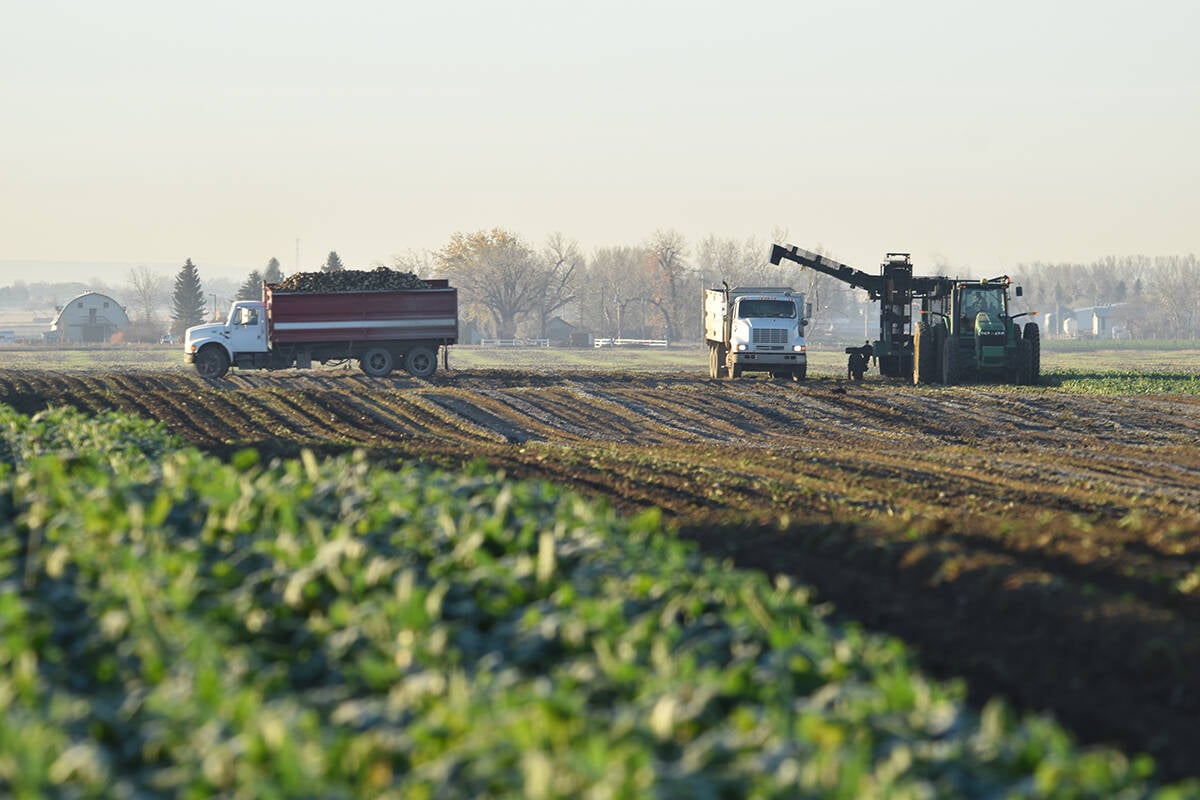VANCOUVER – Canada’s ninth case of BSE is barely creating a ripple even though the suspect animal was born after the country introduced tougher feed ingredient restrictions in 1997.
The widely anticipated rule to allow wider exports of cattle and beef to the United States is also working its way through the regulatory process with promises from U.S. secretary of agriculture Mike Johanns that it will not be rescinded.
“It shouldn’t matter. It is just a matter of perception because it is not food safety issue, it’s not an animal health safety issue, it’s just a disease playing out its course,” said Hugh Lynch-Staunton, president of the Canadian Cattlemen’s Association.
Read Also

Canada the sole G7 nation without a Domestic Sugar Policy to aid local sugar beet production
Canadian sugar beet industry vastly different to US with free-market system compared to protective government-regulated sugar program
Canadian beef producers have come to accept more BSE cases since the first was discovered nearly four years ago.
A Canadian Food Inspection Agency investigation is under way with help from a U.S. Department of Agriculture veterinarian.
The mature Angus bull born in 2000 came from east-central Alberta, the same region where most of the other cases were found.
“If you get a very probable trail, then it’s explainable and you can see what is happening,” said Lynch-Staunton in an interview at the Canadian Meat Council annual meeting in Vancouver.
Alberta agriculture minister George Groeneveld said he is unsure how the latest case of BSE will affect Rule 2, the minimal risk rule that will allow the U.S. to import Canadian cattle older than 30 months.
“It was certainly unfortunate timing for Rule 2, there is no doubt about that,” said Groeneveld during the Agricore United annual meeting in Calgary.
Groeneveld believes the latest case of BSE will help the American cattle producer group R-CALF delay the entry of more Canadian beef into the U.S.While BSE cases no longer create the same frenzy as they once did, it will not help cattle producers already hurt by low prices.
“They have enough concerns out there without having to deal with one more case of BSE,” the minister said.
Groeneveld said the discovery of the latest case was not unexpected, especially with Canada’s vigilant testing methods. If the Americans tested as thoroughly, they, too, may find more cases, he added.
“I believe they would find cases. I don’t have any doubt about it. If you test enough of these animals there’s a percentage will be there.”
Federal agriculture minister Chuck Strahl carried the same message to the Canadian Meat Council meeting where he spoke Feb. 9.
“This latest case of BSE is not expected to impact on those proposed changes in the U.S. The risk assessment on which the rule is based provides for additional low level occurrences like this,” he said.
Allowing the rule to proceed is consistent with World Animal Health Organization standards that say not to stop trade when only a few cases appear.
Canada’s control measures remain consistent with the world standards so it has unofficially received controlled risk status. The same status was granted to the U.S.
On Jan. 5, the CFIA filed a 50,000 page package to the World Animal Health Organization requesting Canada be reclassified. There are three categories: unknown; negligible; and controlled risk.
A final decision is expected in May, four years after Canada reported its first domestic case, said Francois Guimont, president of the CFIA.
In response to Rule 2, Canada is relaxing its rules on bluetongue and anaplasmosis testing on American cattle coming north. It is also allowing the import of American breeding sheep, goats and other small ruminants that were previously banned from entering Canada since the U.S. discovered its own BSE case.
“It sends a signal that Canada is open for business and we appreciate the reciprocal action on the other side of the border,” Strahl said.















